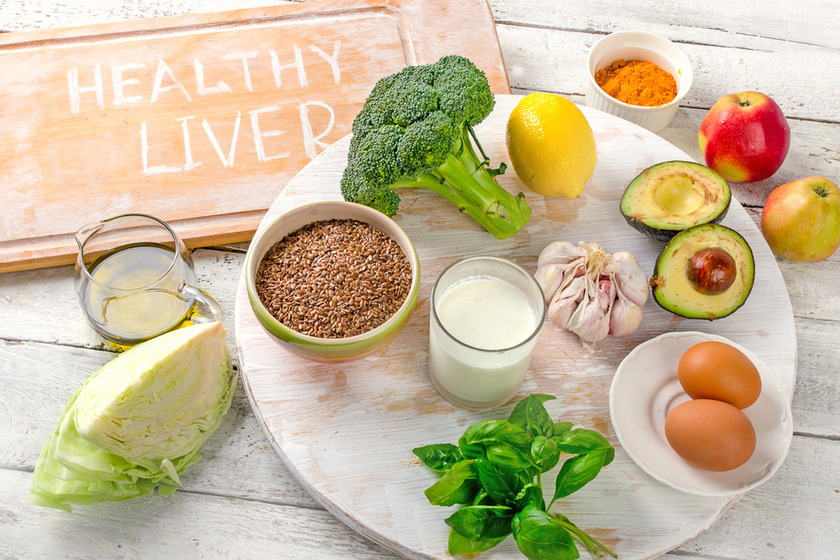As we move into our 60s, maintaining our health becomes a priority, and liver health is no exception. The liver, a vital organ responsible for detoxification and metabolism, plays a major role in our overall well-being. Despite its resilience, the liver can face challenges as we grow older, making it important to adopt habits that support its function. Here are some practical tips to help you maintain liver health as you age.
Why Liver Health Matters
Your liver is an unsung hero that processes everything you consume and helps eliminate toxins from your body. It’s like a hardworking filter, ensuring your system runs smoothly. However, lifestyle choices and age can put a strain on this organ, potentially leading to various health issues. By focusing on liver health as you age, you can continue to enjoy a vibrant and active life.
Stay Hydrated
One of the simplest yet most effective ways to support liver health is by drinking plenty of water. Hydration helps the liver flush out toxins more efficiently and keeps your entire system running smoothly. Aim for at least 8 glasses of water a day to support your liver’s natural detoxification processes.
Eat a Balanced Diet
A nutrient-rich diet is key to liver health. Incorporate plenty of fruits and vegetables, especially those high in antioxidants, which help combat oxidative stress and inflammation. Foods like berries, leafy greens, and citrus fruits can significantly benefit liver function. Choose whole grains over refined carbohydrates and lean proteins such as fish and chicken.
Limit Alcohol Consumption
Excessive alcohol intake is one of the leading causes of liver damage. As we age, our liver’s ability to process alcohol diminishes, increasing the risk of liver disease. Moderation is essential. Stick to recommended guidelines, which suggest no more than one drink per day for women and two for men, to safeguard your liver’s health.
Exercise Regularly
Physical activity isn’t just good for your heart; it also promotes liver health. Regular exercise helps reduce fat buildup in the liver, known as fatty liver disease, which is common in older adults. Aim for at least 30 minutes of moderate exercise, such as brisk walking or swimming, most days of the week.
Avoid Toxic Substances
Be cautious about exposure to toxins, whether from household cleaners, pesticides, or even certain medications. The liver works hard to process these substances, and minimizing your exposure can reduce its workload. Whenever possible, choose natural or less toxic alternatives for cleaning and pest control.
Maintain a Healthy Weight
Obesity is a major risk factor for liver disease, including non-alcoholic fatty liver disease (NAFLD). Maintaining a healthy weight through a balanced diet and regular exercise can significantly reduce the risk of liver issues. Focus on gradual, sustainable weight loss if needed, rather than drastic diets, which can be harmful to your liver.
Get Regular Check-Ups
Regular medical check-ups can help catch liver problems early. Blood tests can check for liver function and detect any abnormalities. Discuss your liver health with your healthcare provider, especially if you have risk factors such as a family history of liver disease or high alcohol consumption.
Be Cautious with Supplements
While many supplements claim to support liver health, some can actually be harmful if taken in excess. For example, high doses of vitamins A and D can lead to liver damage. Always consult with your doctor before starting any new supplement regimen, particularly if you have existing health conditions.
Practice Safe Hygiene
Certain viral infections, like hepatitis, can severely impact liver health. To reduce your risk, practice good hygiene, avoid sharing personal items like razors or toothbrushes, and consider vaccinations for hepatitis A and B if recommended by your healthcare provider.
Manage Stress
Chronic stress can negatively affect your liver function. Engage in activities that help you relax, such as yoga, meditation, or even hobbies that you enjoy. Managing stress effectively can benefit your liver and improve your overall quality of life.
Health, Wellness, and Community: Find It All in Our Portage Senior Living
Taking care of your liver is crucial as you enter your 60s, but it’s just one part of a holistic approach to wellness. At our retirement community, we provide a supportive environment that promotes not just liver health, but overall well-being. Here, you’ll have access to nutritious meals, tailored fitness programs, and a vibrant community that encourages healthy living.
Imagine living in a place where your health is nurtured, and you are surrounded by like-minded individuals who inspire each other to stay active and healthy. Join us and take the first step toward a healthier, more fulfilling lifestyle. Schedule a tour of our community today!







